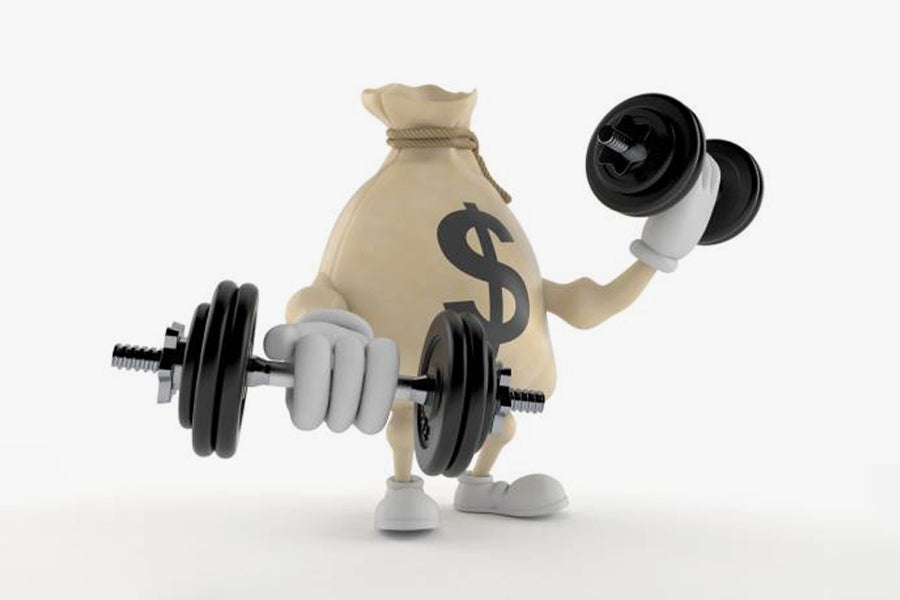Are you ready to add some sculpted guns to your workout routine? Choose dumbbells as your go-to tool for strength training and fitness. Forget complicated machines that only work a few muscle groups - these versatile weights can help you target every major muscle in your body.
Did you know that dumbbells, although they are handy weights that help sculpt our muscles and tone our bodies, can often come with a hefty price tag? But why is that? Are the dumbbells secretly made of gold? Are there tiny magical creatures hidden inside each weight, providing extra strength?
The answer can be more exciting - it all comes down to the materials and manufacturing process. But don't sweat it - we're here to uncover the mysteries behind the high price tag. From shiny coatings to adjustable weights, various factors can contribute to the inflated cost of these gym staples.
Let's unravel the secrets of the dumbbell industry so you can make an informed decision on your next purchase. So, grab a seat (or a dumbbell), and let's get to the bottom of this.
Related Article: What's the Importance of Thick Grip on Bars and Dumbbells?
How Much Do Dumbbells Cost

Whoever said getting fit doesn't cost a thing has yet to try to assemble a home gym, as dumbbells alone can cost a pretty penny, with some heavier sets exceeding the price of a high-end smartphone. But forget not, since there are ways to save a pretty penny on this essential equipment.
A common sentiment shared by almost all fitness enthusiasts regarding investing in dumbbells is;
"While dumbbells may seem expensive initially, they are a cost-effective way to build strength, increase muscle mass, and improve overall fitness. When you consider the long-term benefits, they are worth the price."
So you've dreamed of becoming a ripped and toned athlete, but you don't want to break the bank. A pound of weight may set you back a measly $1.50-$2.00, a standard 5-pound dumbbell pair can be yours for as little as $17-20. But let's be accurate; you can only get a little far with those small weights.
If you want to pump some iron, you can invest in a set of lighter weights for at-home workouts or go all out with a heavy dumbbell rack for your home gym. Either way, you can be well on your way to becoming a beast with bulging biceps.
If you think of buying heavy sets, it can burn a hole in your wallet. However, lighter sets can range anywhere from $40 to $50. But wait, there's more! The material and mechanisms used in dumbbells can also affect their price. So before you break out your credit card, let's explore ways to lift your fitness game without burning a hole in your pocket.
Types of Dumbbells
You would be astonished to know that all dumbbells are not created equal. So, it's time to get the lowdown on how to pick the perfect weightlifting equipment. Whether setting up your home gym or looking to bulk up at your local fitness center, there's a dumbbell for every occasion. Trust us, and it's not all about picking the heaviest ones. Dive in and find the perfect fit for you.
Fixed Dumbbell
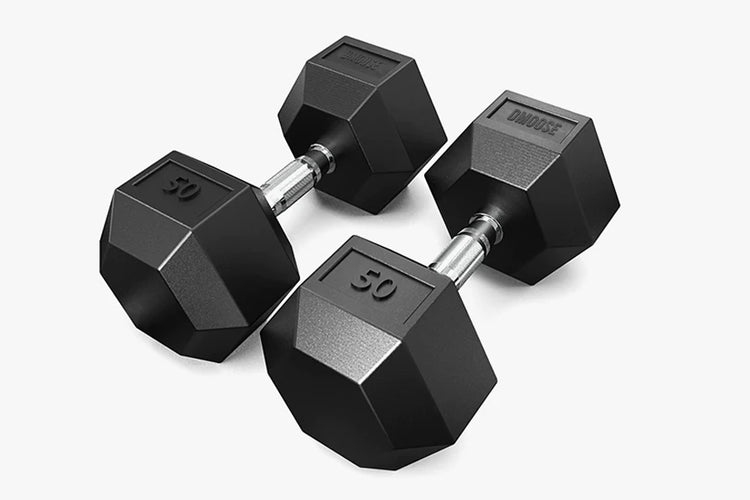
If you've ever hit the gym, you must have seen these workout wonders-fixed dumbbells. They come in different weights, are robust, and are super convenient for changing your workout. They only suit the average homebody if you're ready to turn your place into a gym. They don't come cheap and take up some grave space.
So unless you're all in, your best bet is to settle on a few pairs and keep things manageable. But if you're serious about weight training, it might be time to ditch the gym fees and create your home sweat zone with these heavy-duty lifters.
Adjustable Dumbbells
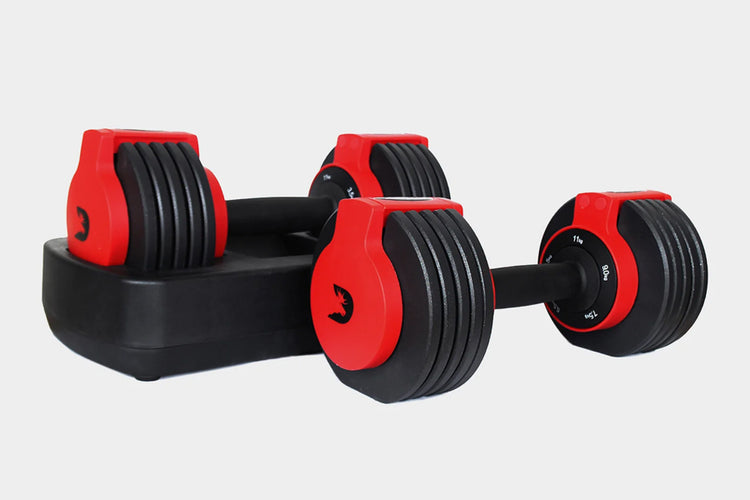
If you are not a big fan of fixed dumbbells in creating a home gym, switch to adjustable dumbbells. These bad boys are compact, cost-effective, and versatile. They're like the Swiss Army knife of weight training! Plus, unlike their clunky fixed counterparts, you can switch the weight and intensity to crush your biceps with a quick click (no sweat required).
And if you're extra thrifty, you can opt for the only gaming setup, where you load and unload plates from smaller bars that double as dumbbells. It's like getting two-for-one savings! Get ready to pump those guns (and save a few bucks) with a trusty set of adjustable dumbbells.
Reasons Why Dumbbells Are Costly
Coming towards the dumbbell cost. These handy weights are made from sturdy metals like cast iron or steel, giving them their shiny exterior and price tag. At the same time, making each dumbbell is a labor-intensive process requiring skilled artisans, further driving the cost.
And let's remember the range of weights and sizes that dumbbells come in, which means using more materials. So next time you lift those pricey weights, pat yourself on the back for investing in your fitness and stick to a cheaper brew for a while.
Here are a few main reasons behind the vast amount we pay for dumbbells.
- Materials dumbbell sets are made from.
- Weight of dumbbells.
- Shipping cost.
Materials Dumbbells Are Made From
When it comes to dumbbells, you've got options. Neoprene, cast iron, and rubber-coated, it's like a material buffet. And wait to get us started on the never-ending selection online! But fear not because we're here to break down the key differences between these weighty contenders. So grab your popcorn (okay, maybe some water instead), and let's dive in!
Neoprene
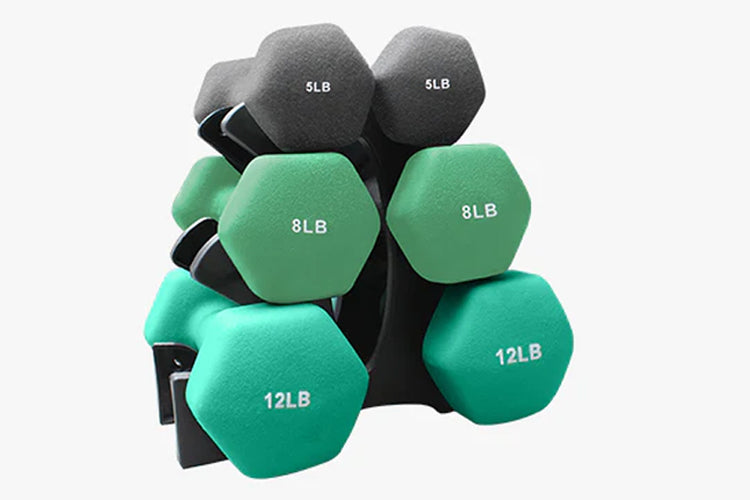
If you've ever picked up a pair of light dumbbells and wondered what they were made of, chances are it is neoprene-a sleek, synthetic rubber perfect for at-home workouts. Whether you're smashing out a HIIT session or want something lighter for those bicep curls, these neoprene dumbbells will do the trick.
And the best part? You can only break the bank when picking up a set of various weights. It's time to say goodbye to the bulky, clunky weights of the past and hello to a more stylish (and practical) workout.
Cast Iron
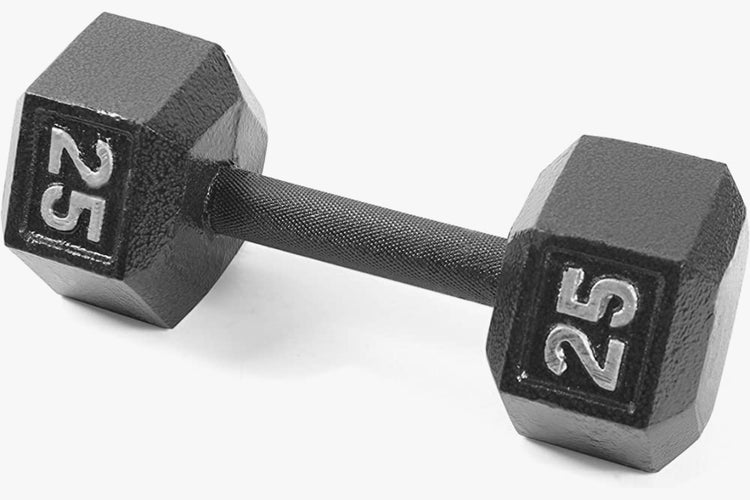
Step into a classic weightlifting gym, and you can spot these brawny guys front and center. Think of them as the no-frills, no-fuss older brothers to their brighter and shinier counterparts. There are no gimmicks with these guys - just good old-fashioned solid iron with the weight etched in for easy reference.
Sure, they may not catch your eye with flashy colors or fancy engravings, but they make up for it in pure beefiness and resilience. Plus, they can keep your bank account as they're relatively inexpensive to manufacture. In other words, these hulks may not be the prettiest, but they're the strong and silent type.
Rubber Coated
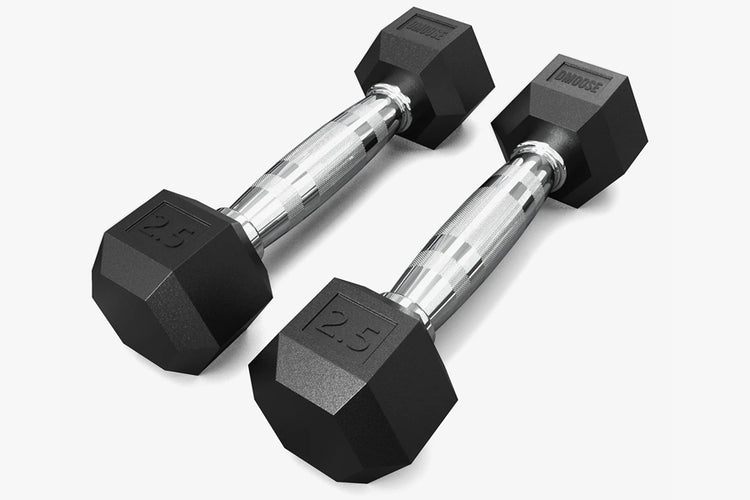
Let's unravel another secret, did you know that the priciest ones of the bunch are the rubber-coated ones, and yes, they're worth every penny? You can find these dumbbells in commercial gyms, and they're built to last. With their rubber coating, you won't have to worry about leaving a dent in your floor if you accidentally drop them.
And despite being pretty tough, they're as gentle as a feather on the delicate skin of your palms. And they can quickly settle in your hand when you dust your hands with gym chalk. So let these trusty dumbbells be your iron allies as you flex your muscles and sculpt that chiseled body!
Weight of Dumbbells
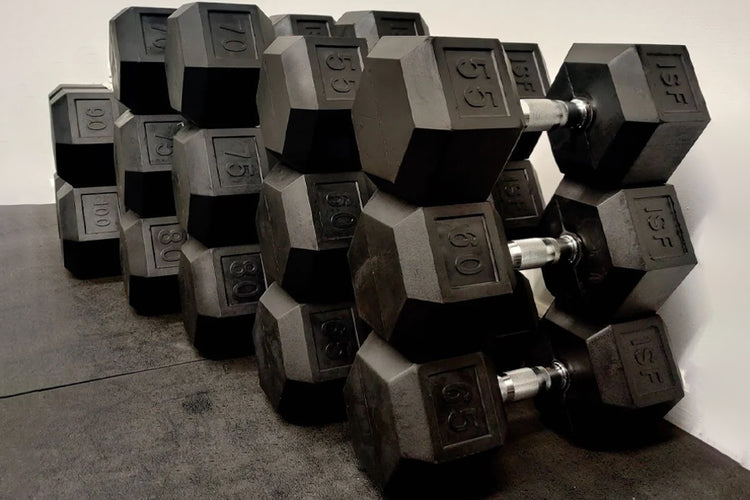
Whenever we hear the term the weight of dumbbells, two main things come to mind: the use of lifting hooks to hold the weight of dumbbells and the cost of dumbbells. And both are facts, too.
Do you ever wonder how much those bicep-pumping, sweat-dripping dumbbells at the gym weigh? Typically, they come in a range of 1 to 50 pounds. So, whether you're a beginner or a seasoned gym-goer, there's a weight for every level of muscle madness.
You might have heard that the cost of a set of dumbbells depends on their weight-and that's not wrong. We pulled some weights to show you how weighty the matter is regarding prices. Brace yourself because it might make you want to pump more than iron.
Usually, a pound of dumbbell weight can set you back around $1.50 to $2 - but there's a catch. When it comes to hefty weights, things get cheaper. The price drops from $1 to $1.50 per pound, which is good news if you lift heavy lbs. For instance, a 50-pound dumbbell can cost between $45 and $60.
It would be insane to pay more than $2 for a weight of this magnitude! And that makes sense too.
Shipping Cost
Let's talk about the not-so-fun part of buying dumbbells: shipping. Ideally, you want to snag free shipping, but let's be honest, that's about as rare as a unicorn riding a rainbow. So, your next best bet is picking up the weights at a store with your sweet ride.
But if you're resorting to online ordering, beware of shipping costs that could make you feel like you're buying gold-plated dumbbells. So, word to the wise: check those shipping fees before clicking "buy."
How Much Used Dumbbells Cost
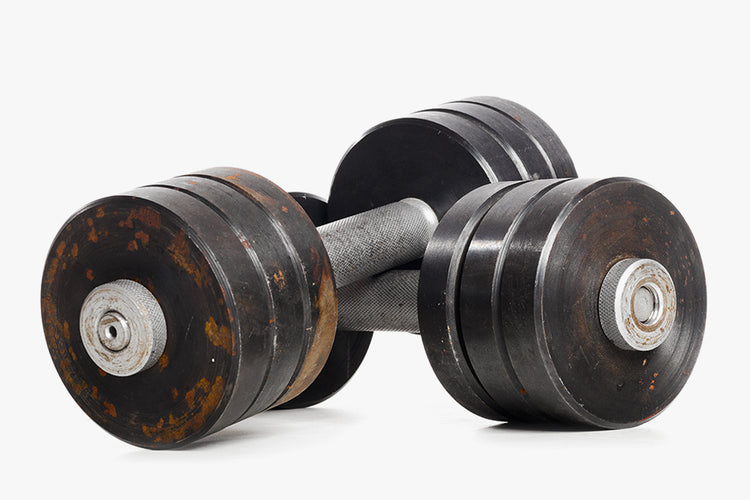
When building your home gym, saving wherever you can is crucial. And what better way to do that than buying used equipment? You can find cheap dumbbells online for as little as 70 cents - though be prepared to dish out a bit more for the fancy, schmancy ones.
Sure, they may be pre-loved, but they'll be good as new with a little disinfecting. Just be careful who you buy them from - shipping costs can add up, and damaged dumbbells are no good to anyone. But if you take the time to do your research, you can save some serious cash and still crush those reps.
Related Article: 10 Things I Wish I Knew Before I Started Lifting
FAQs
1. How expensive should a dumbbell be?
When determining how much a set of dumbbells should cost, you should consider not only its weight but also the type of product you're getting (adjustable vs. fixed weights), what material it is composed of (steel vs. plastic), whether any extra features such as stands have been provided (for ease and safety) as well if custom finishes have been used which may increase production times leading to a high price tag - all these factors together will play into deciding how expensive your next set of "dumbbells" should be!
2. Why is it so hard to buy dumbbells?
Buying dumbbells can undoubtedly be a challenge for many people because there are so many options available and often such an extensive price range. To begin with, not everyone can afford expensive, adjustable weight sets that come in small increments. Plenty of pre-packed dumbbell sets offer little variety or flexibility when selecting weights for different exercises. These set packages are more expensive than purchasing individual dumbbells as well.
3. Should you buy cheap dumbbells?
Ultimately, whichever option you choose will depend on your needs: weigh durability vs. price, prioritize safety features, or find something suitable for both beginner-level users & experienced lifters alike. Whatever route you go down, ensure it fits within your budget while still capable enough for all required exercises. After all, those daintier sets will only do a little in building explosive power & enhanced performance!
4. How long do dumbbells last?
A good rule of thumb when buying a set is to try out the product before purchasing since you'll be able to determine whether or not it will hold up over time, given your fitness routine. Investing in adjustable sets is also beneficial because they allow you more weight flexibility and save space at home! Plus, they typically come with warranties if anything happens during their lifetime - so keep that receipt handy!
Takeaway
Strength training can be a pricey endeavor, especially regarding dumbbells. These versatile tools come in various weights and materials but can leave a dent in your wallet. Dumbbells can vary significantly from lightweight options that cost up to $50 to hefty sets selling for over $100.
The manufacturing process is costly, as many are made of cast iron or steel and undergo labor-intensive production. Different types, like fixed, adjustable, and rubber-coated, make the selection process even more challenging.
While the cost per pound may decrease with larger sets, the weight can still range from $1-$2 per pound, which doesn't include potential shipping charges. However, used dumbbells can be an excellent option for those on a budget, with prices starting as low as 70 cents each online. In a nutshell, it's up to you to buy a new-pricy one or a used-economical one. Good luck!






